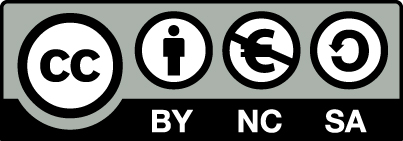2.2 Licensing and copyright
The development of massive networked data infrastructures has led to changes in how we view intellectual property in research and education. Many ‘open’ movements have challenged publishing companies’ control over intellectual property. Public funding bodies are increasingly favouring re-use of digitised collections in order to justify their investment in digitised resources.
Creative Commons is one of the most important international licensing systems, which works alongside (not as an alternative to) copyright. Creators choose a license for their work and label it accordingly. Unlike many other systems of intellectual property licensing, Creative Commons is designed to be used by non-specialists and to facilitate, rather than restrict, re-use and further sharing of creative works: including this course.

